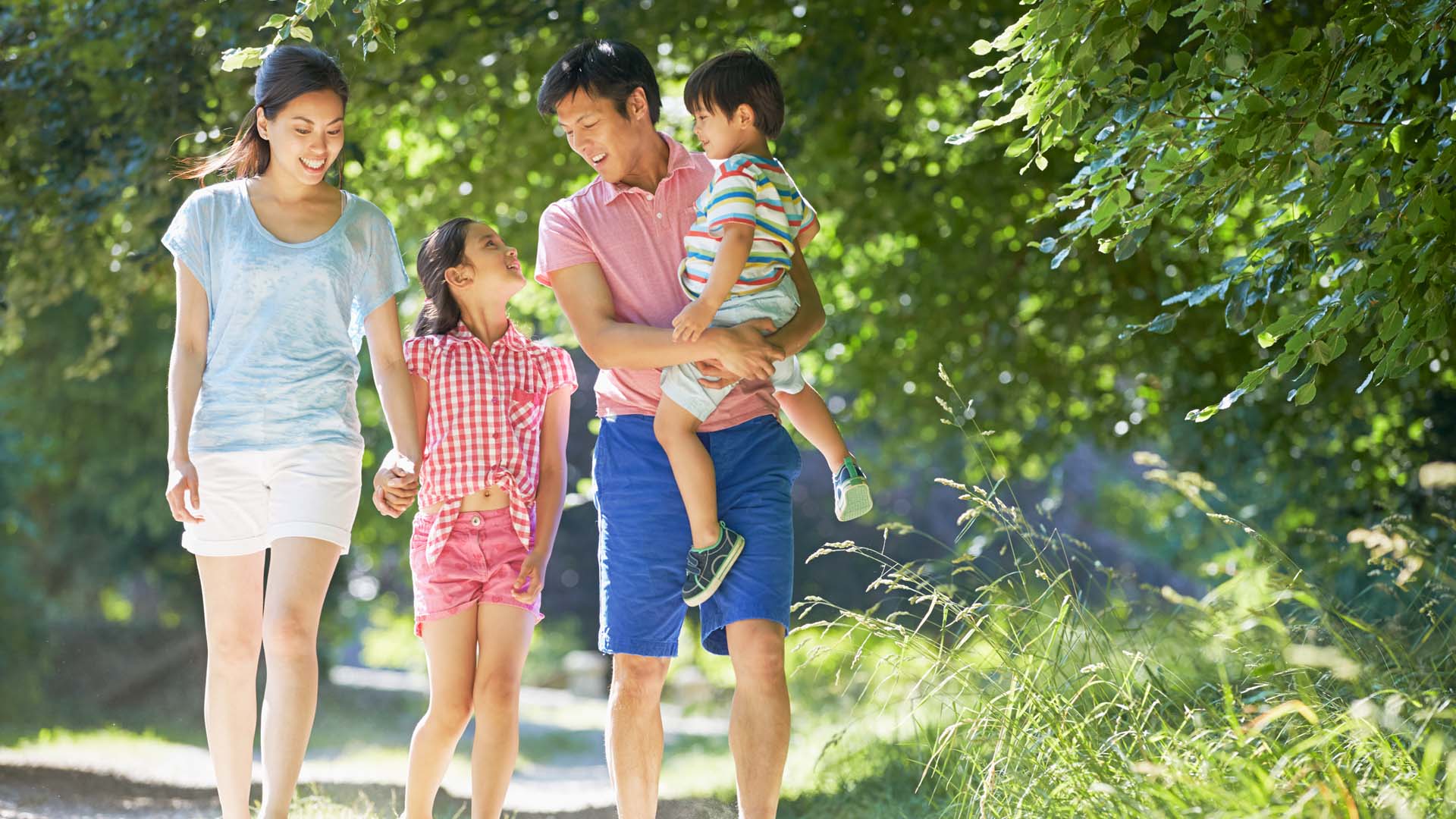
It’s never easy to have the sex talk with our children, as many parents are likely to attest. In conversations with Anne Soh, Cheah Fung Fong, and Lim Chien Chong, we hear how these parents have talked to their kids about the birds and the bees over the years.
Both Anne and Fung Fong are mothers of three children. Anne is the regional director of Generations of Virtue, a ministry that aims to equip families to transform culture, while Fung Fong is a doctor and frequent speaker at Christian parenting workshops and conferences. Chien Chong is a father of two, and a long-time staff at Singapore Youth For Christ.
What was it like trying to talk to your kids about the birds and the bees?
Fung Fong
I’ve always thought that when my children reached their teenage years, I needed to sit them down and do the “big talk” with them. So when my son turned 13, my husband and I decided that we would have that big talk with him over a nice, fancy meal. We brought him to a nice restaurant, and sat him down. I was waiting for my husband to launch the conversation, but he didn’t, so I took it upon myself to talk about the birds and the bees.
Then I noticed that I was the only one talking, and there was an awkward silence from my husband as well as my son. So I decided that this wasn’t quite the right time to talk about this. I changed the topic, and you could see everybody was very relieved, and the conversation started flowing again. That’s when I learnt: sitting children down to give them a lecture may not be the best idea. You need to wait for those right moments—what I call the teachable moments—to talk about topics like that.
Sitting children down to give them a lecture may not be the best idea. You need to wait for those right moments—what I call the teachable moments—to talk about topics like that.
Chien Chong
The challenge is, how do you bring up these issues such that it’s not awkward, that you don’t nag, and you don’t end up talking round and round but never really getting to the main points? My boys—boys being boys—prefer to hang out and do things. They don’t really like to sit down and talk, talk, talk. They prefer to chill. It’s not easy for them to talk about issues and things they are very conscious about. Sometimes, they would rather struggle on their own, so we just have to keep trying.
One of the things that my wife and I try to do is to build these issues into our daily conversations. Sometimes, they come back from school and say, these things happened, and it becomes a good platform to talk about relationships, love, and sex. Or, when we see some things in the news, we would just talk about it. As they entered their teenage years, we thought that we should be more intentional and deliberate in setting aside time together as a family to talk about some of these things. But first, we need to read what the Bible has to say.
Anne
One day over lunch, I remember, when my boys were still quite young—maybe 13 and 11—one of them suddenly asked, “What is an erection?” I had to do my very best to keep calm and not freak out! I told them, “Okay, let’s talk about it after lunch”, because I didn’t find it a very pleasant meal-time topic.
Since then, however, I’ve gotten better at this. More recently, one of the boys was talking about anal sex during dinner. It had been the topic of an earlier conversation between him and his friends at recess. (Roll eyes and jaw drop.)
But such things are very common with our kids: we cannot just keep mum on the subject, like what our parents used to do. We need to talk about such things openly, because it’s very important that we are the first one to send them the messages that we want them to learn and to remember for life, rather than for them to learn it from their friends or from the Internet.
Help! How Do I Talk to My Child About Love, Sex, and Marriage
Get this relevant resource!
Our resource, Help! How Do I Talk to My Child About Love, Sex, and Marriage is now available.Get a copy
Every month, we roll out a new resource for parents and children. To find out about these offers, why not subscribe to our email updates? Stay informed about the latest resources available, and be the first to get a copy!
How old were your kids when you started talking to them about love, sex, and marriage?
Chien Chong
We tried to bring up some of these issues when they were much younger, but they were not as attentive—they didn’t find it relevant, because they were not there yet. The things we talked about were very cognitive, and they could not relate to them. Now, they are teenagers and are starting to notice changes taking place in their lives, such as having conversations with girls and even receiving gifts from girls.
Sometimes, my wife and I wonder whether we have prepared them enough, or whether we have talked to them enough to get them ready for this stage. But then again, we have to remind one another that we really never know when is the best time to have the conversation. Even if it appears to be late, we encourage each other and say, “It’s never too late.”
Fung Fong
There’s no set rule about what age you should have these conversations. As parents, you know your kids best, so you know when is the best time to start talking about certain aspects of relationships, sexuality, and boy-girl relationships.
There’s no set rule about what age you should have these conversations. As parents, you know your kids best.
For example, when your child is a preschooler, you’ll be talking to them about body parts—which are your public parts and private parts, and how nobody should be touching your private parts. As your child grows older, you start talking about puberty changes, and go on to talk more about love and infatuation, and finally sexual intimacy.
You talk about different things at different times, and these conversations continue throughout your child’s life, from the moment they are preschoolers right to their young adult years.
Anne
Even from birth, as we bathe our baby, we should start naming the body parts properly rather than using nicknames. That helps them to understand that their bodies are God’s creation. Our sexual organs are a gift from God, so there’s no shame involved. As they get a little bit older, say in preschool, and start to watch cartoons with fairy tales about love at first sight and so on, it would be good to start talking about marriage and relationships, and what the biblical perspective is.
When they start going to school, you can start talking about the differences between genders, because once they start mixing with other children, they will see that boys and girls have different body parts. That’s when you can explain about reproduction, how the different body parts work, and how this is actually part of God’s design for us to be fruitful and multiply.
Sometimes, you have to come back to a topic again and again, but at a deeper level as they get older and grow in maturity.
Then, as they get older, like preteens, and the hormones start going crazy, you can start talking about puberty. When they start having an interest in the opposite sex, you can start talking about boy-girl relationships. Of course, anytime you read or hear something about say, child molestation or LGBT arguments, these are teaching moments we can use to talk about the biblical perspective.
Sometimes, you have to come back to a topic again and again, but at a deeper level as they get older and grow in maturity. For example, when we talk about marriage with preschoolers, it’s at a very basic level. As they get older, in their late teens or even when they are in their 20s, you can go deeper—how to prepare for marriage, and what it means to make a lifetime commitment.
In your conversations, what do you try to focus on?
Fung Fong
Ultimately, I want my children to know that they belong to God, and that they are fearfully and wonderfully made. That gives them a strong and secure identity about themselves as a child of God. Once they have that understanding, then many things flow from that, into the understanding of what sexual purity is. For example, the Bible teaches us not to be sexually immoral, as our body is a temple of the Holy Spirit, and we worship God with our bodies.
Ultimately, I want my children to know that they belong to God, that they are fearfully and wonderfully made. That gives them a strong and secure identity about themselves as a child of God.
Being firmly rooted in Christ is very, very important—to know that God has a great purpose for their lives, which may or may not include marriage to someone of the opposite sex. It’s very important that our children know God as their Master, and discover the mission He has for them. I always tell my kids, know your Master, discover God’s purpose for your life, and if it is in His will, God will send a mate to journey through life with you.
Chien Chong
We want to help them understand and appreciate the gender that God has given to them. Another thing is about how to establish good relationships among friends, and as they get older, how to establish a good relationship with that special someone. And, of course, issues pertaining to love and sex. When they are going through puberty and adolescence, they are curious. It’s difficult for them because of the changes that are taking place, so we want to help them cope with these changes.
Anne
I’ve been teaching them from young about the birds and the bees, and also about the pitfalls and how to protect themselves—whether it’s from molestation or even from online porn. The age of first exposure to porn can be as low as eight or even younger, so it’s better for us to prepare ahead of time, so they know the strategies to manage such things. It is a good way to equip them, so that when temptations and dangers come along, they will not be shocked or be lost on what to do.
In all our discussions, we always try to come back to what God says about the issue, rather than what the world says, what teachers say, and what friends say.
What resources have you found useful?
Chien Chong
Last year, my wife stumbled upon a documentary which dealt with issues that teenagers go through, like internet use and abuse, computer gaming, sex and love, and gender-related issues. She suggested that we watch the video together during our family devotion, and facilitate a discussion after that.
Initially, I was a bit sceptical. But interestingly, the boys took to it quite well. We watched the two-hour documentary over three weekends, and after each segment, got the boys to share about what they thought and how we could support them. To my surprise, they actually shared quite spontaneously, and we walked away understanding one another a lot better.
Every family is different. If something works for one family, it doesn’t necessarily mean that it will work for ours. We have to adjust and customise it for our family context and our children’s personalities.
I’m also usually on the lookout for good examples from other parents. I approach others to hear their perspective and what they have done for their children, and try to incorporate good practices into our own family. My wife, meanwhile, looks out for websites and resources, some of which give very good practical tips.
One thing I’ve realised is that every family is different. If something works for one family, it doesn’t necessarily mean that it will work for ours. We have to adjust and customise it for our family context and our children’s personalities, so that it’s natural.
Anne
Personally, I’ve been opting out of the sexuality education in school for all my three children. Instead, I prefer to teach them myself, together with my husband. There are many resources that we’ve tapped over the years. One of them involves each child, when he or she is 11 going 12, going away on a two- or three-day retreat with one of us and spending time going through the materials. This package helps to build a strong biblical foundation for their perspectives on sex, relationships, and marriage.
What important lessons have you learnt?
Chien Chong
I think it’s very important to listen to our children. Sometimes, there’s a danger of thinking we know what’s best for them. But they may not necessarily see it as good for themselves. That’s when we have to come to an agreement on what we can work on together as a family. So listening to them is very, very important.
Sometimes, there’s a danger of thinking we know what’s best for them. But they may not necessarily see it as good for themselves.
The parenting journey is very humbling—my wife and I find ourselves failing in some instances. There are occasions when we find that we are not getting through to our children, but when we look back, we discover that it’s because we ourselves have not really worked through these issues. So it’s a very humbling journey, but it’s a growing journey for everyone—both children and parents.
Anne
Because we have an open communication channel with our kids, it’s very easy for them to come to us whenever they face any problems. So when they start dating and have problems in their relationships, they can share with us freely. We need to start young, so that it becomes very normal for us to talk about such things.
The most important thing for parents is to keep calm: don’t freak out, no matter how the conversation goes, what kind of topics they bring up, and how controversial they may be. Just keep calm. And keep our children in prayer. Pray for ourselves as well, for wisdom from God to know how to answer some of those difficult questions.
What would you tell a parent struggling with this challenge?
Anne
Just know that you’re not alone in this. Every parent finds it a struggle to get started. For most of us, our parents never really taught us, so we have to figure it out ourselves. But know that we can find a community to walk together with us. It really helps when we can bounce ideas off each other, share resources, and pray for one another and our children. So, find that community so that you can grow together.
Chien Chong
While we have to keep playing our part to bring them up in the discipline and instructions of the Lord (Ephesians 6:4), ultimately, their growth is really under the Lord’s control and sovereignty. There’s only so much we parents can do, and we must learn to trust God. We won’t succeed all the time, but we have to keep going and keep engaging our children, so that they can see what the Word of God says on issues pertaining to love, relationships, and sex.
Fung Fong
One thing that has really helped me and my kids is to pray for them through all their growing up years. Ask God, their own Father and Creator, to protect them and to give them wisdom to make decisions about this important part of their lives. Pray for your kids through every season of their lives. Remember that as you begin conversations with your children about sexuality, you have God as your partner.
Remember that as you begin conversations with your children about sexuality, you have God as your partner.
Anne Soh has three children aged 18, 22, and 24, and is a missionary with WEC International (Singapore). Since leaving her job as a curriculum specialist in the Ministry of Education to be a stay-home mum, she has continued teaching children and youth in various churches for some 20 years. Anne is also the Regional Director of Generations of Virtue, a ministry that aims to equip families to transform culture. She has been serving in the D6 Family Conference organising committee since November 2017, and helps to facilitate breakout sessions on various topics together with her husband, Job Tan.
Cheah Fung Fong is a medical doctor and frequent speaker at Christian parenting workshops and conferences. A firm believer in faith formation in families, she is deeply involved in children’s ministries in the Methodist Church in Singapore and the D6 Family Ministry.
Lim Chien Chong has been with the Singapore Youth For Christ since 1998, and is its Teaching & Resource Director. He serves in the pulpit, Bible class and children’s ministry in his church, and teaches in churches and youth groups across Singapore. He has been married for 20 years and has two teenage sons.




